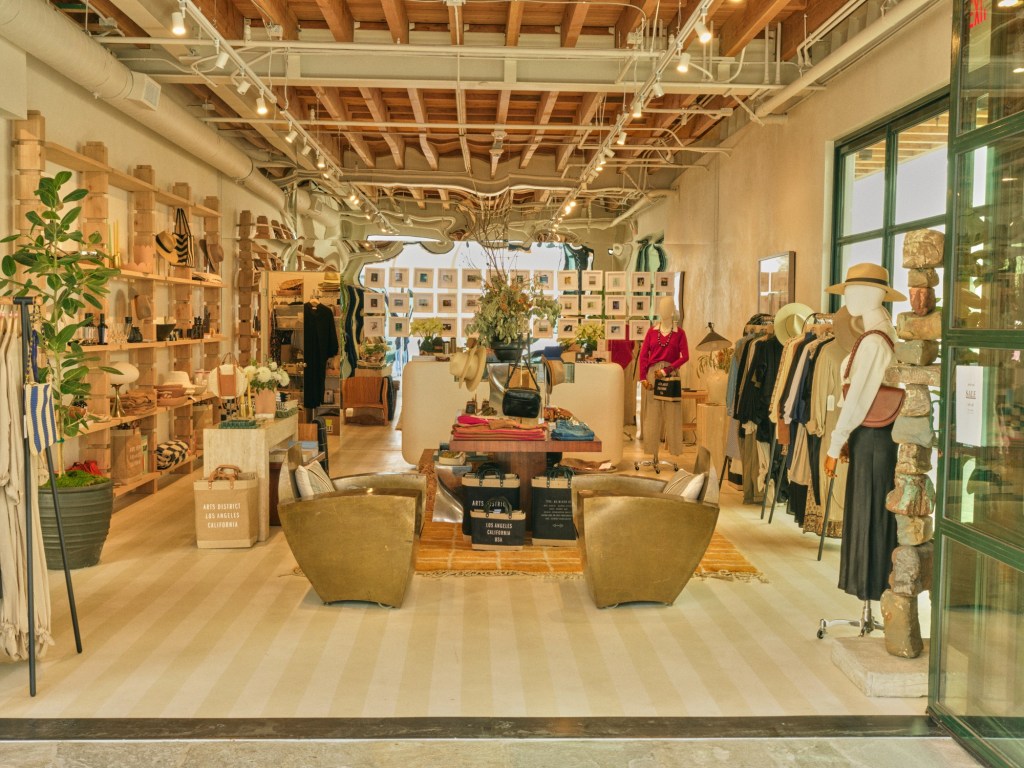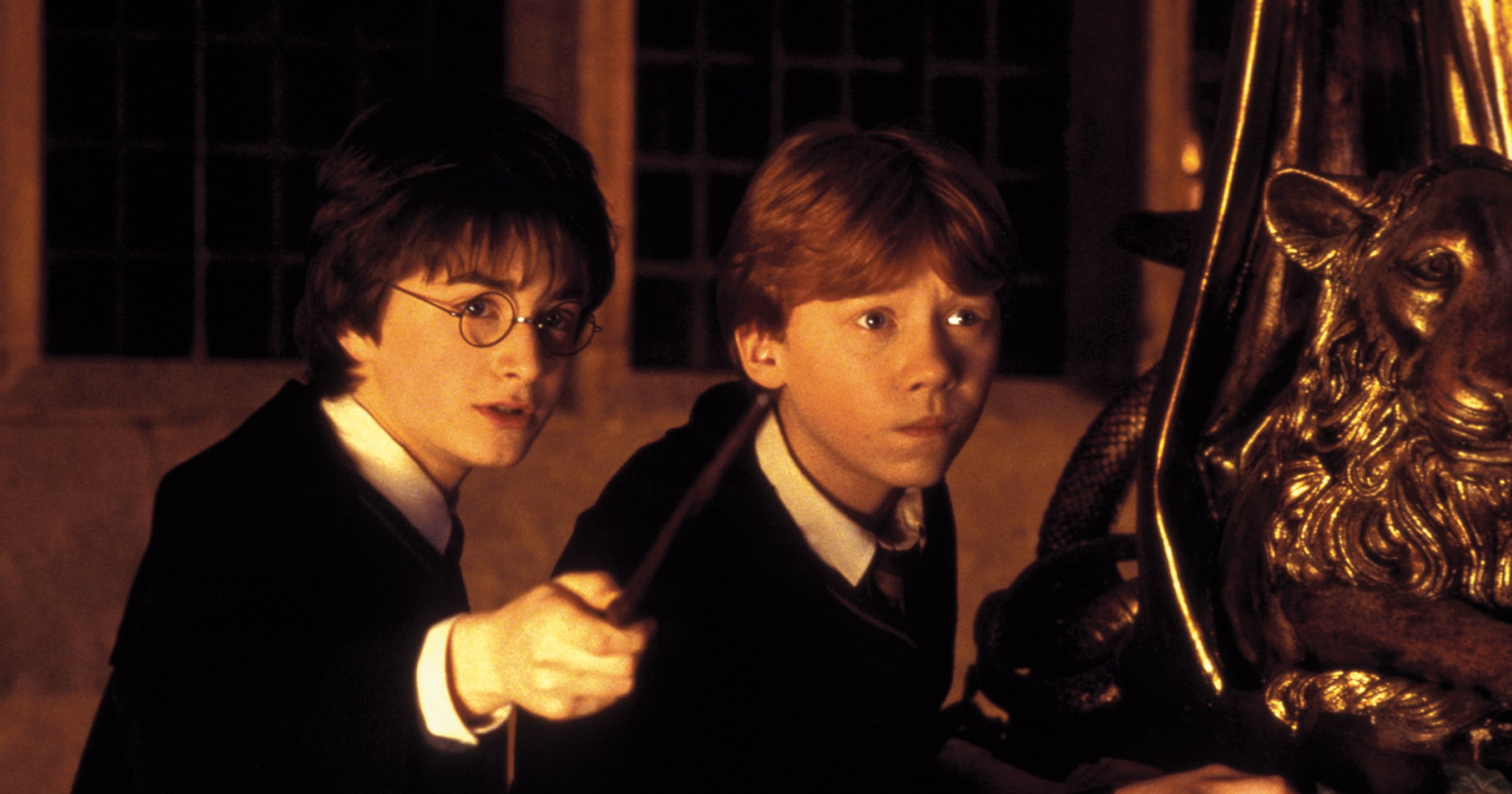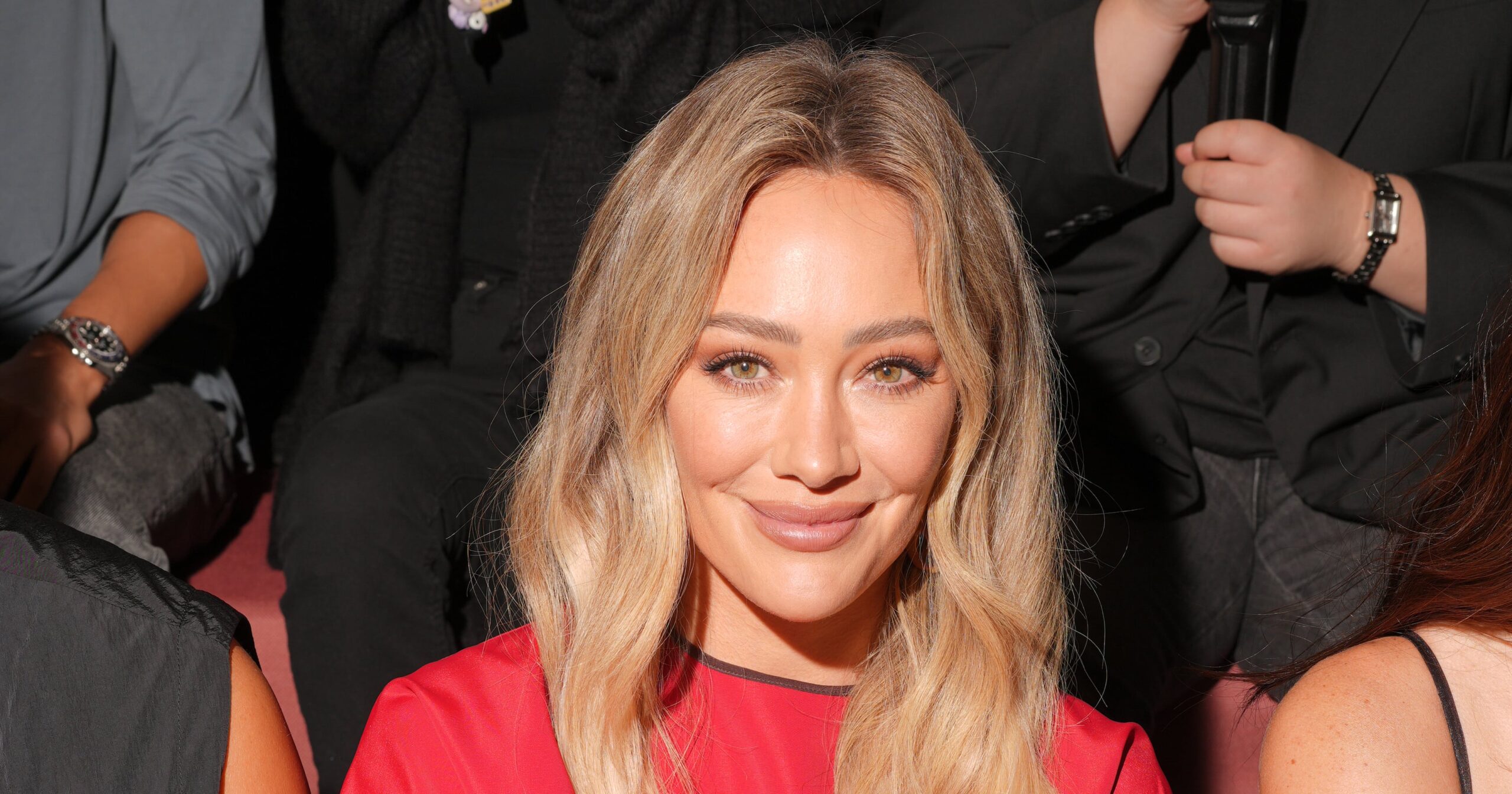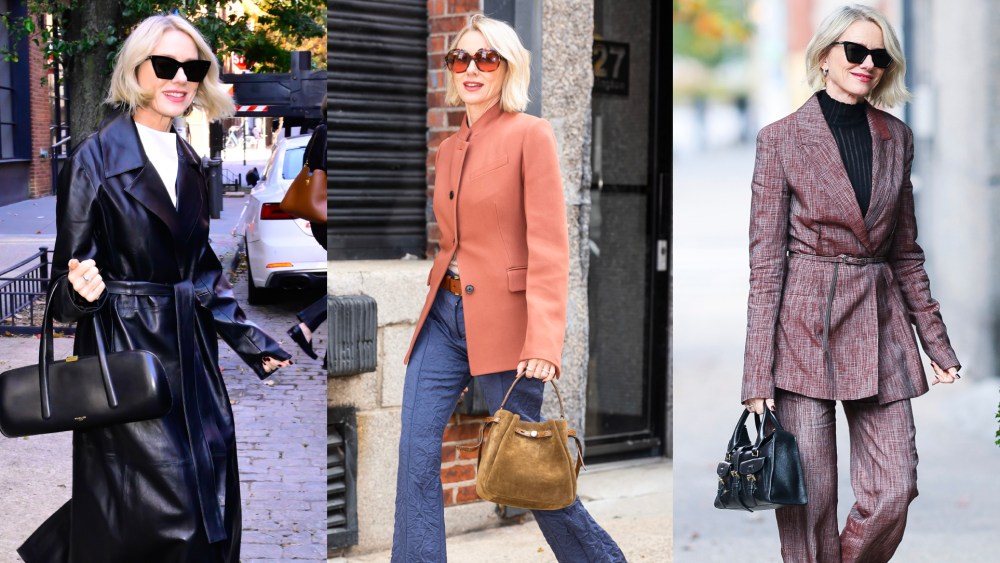Despite slow pandemic recovery and office inventory challenges, which saw the closure of the iconic Ace Hotel in December, downtown L.A. is still a destination for new upscale retail developments.
Now open in the Arts District, Signal has been more than three years in the making and includes outposts of the hip food, beauty and home goods purveyor Flamingo Estate, SoCal interior design darling Lawson-Fenning, and menswear shop M5 Studio, which stocks Aspesi, Engineered Garments and Sunspel, among other brands.
It began when serial retailer Raan Parton and developer Paolo Carini first spotted an old industrial building on Traction Avenue and saw its potential to become a neighborhood gathering spot for events, food and fashion. It sat among the many early 20th century warehouses and industrial buildings now turned into the headquarters for creative companies including Fear of God, Warner Music Group and Re/Done. Nearby, Spotify occupies 155,000 square feet of space filled with 18 sound studios.
The edifice at 821 Traction Avenue, built in 1910, originally covered 25,000 square feet. Its most recent incarnation was a warren of 15 creative office workspaces. “I got really inspired when I saw this building because it had very good bones and the right amount of land to create the proportion you see today,” Carini said.
The first thing you notice when you enter Signal’s large courtyard is an Australian bottle tree with a bulbous trunk and tall green branches.
It stands like a piece of sculpture devised by nature to shade everything it towers over. And it comes with a bit of history. Parton and Carini were determined to have an Australian bottle tree at the center of their courtyard. Searching far and wide, they found about 10 bottle trees at a San Diego nursery. But they were already promised to another buyer. So, the search continued.
“We ended up having to source a tree [via a plant collector] from a private house south of San Diego near the Mexican border,” said Carini, who grew up in Italy and worked as a lawyer before joining Est4te Four Capital and moving to the United States. “That tree is kind of our mascot,” Parton said.

The Signal partners were determined to preserve the building’s structure but added on to create a total of 40,000 square feet over two floors. The second floor is occupied by Greycroft Partners, a New York venture capital firm. Its investments include The RealReal, Goop, Bumble, Anine Bing and Venmo. Greycroft’s lease for a little more than 19,000 square feet includes a large conference room, offices and a shared co-working space for its portfolio companies.
Downstairs, the remodeled building with a Mediterranean feel has a curated band of stores and a soon-to-arrive café called Concierge. Paperwork Newsstand will debut on Feb. 20. One of the principal stores on the main floor is Alchemy Works, part of the small chain launched in 2013 by Parton and his wife, Lindsay. The store showcases an array of apparel, accessories, homewares and jewelry. Alchemy Works has three other California locations in Newport Beach, Napa and the seaside Playa Vista neighborhood in Los Angeles, and a fourth store in Denver.
Next door to Alchemy Works is Flamingo Estate, Richard Christiansen’s lifestyle brand selling candles, soaps, honey and other food items, many of which are sourced from the Flamingo Estate grounds not far away. Nearby is M5 Studio, a concept store specializing in luxury menswear with many Japanese and Italian labels.
Toward the front is Lawson-Fenning, maker and curator of vintage and locally made furniture. Its arched windows overlook the courtyard and the towering Australian bottle tree. Nearby is Period Correct, a destination for all things touching on automotive nostalgia with books, accessories, T-shirts, fleece, headwear and outerwear.

Departamento, the L.A. men’s concept store helmed by Andrew Dryden, a former buyer for Selfridges, and Joseph Quinones, catering to Drake, Frank Ocean and other high fashion rollers, will move from its nearby Santa Fe Avenue location to Signal on March 1. Please Do Not Enter, the art- and design-oriented store curated by French owners, Emmanuel Renoird and Nicolas Libert, will also relocate to the space, opening March 1.
Signal, with its white stucco exterior, curved windows and artful landscaping, was designed by the Klein Agency, founded by Jon and Masa Kleinhample, who have a design studio nearby.
Originally, the complex was going to be called Free Market, after the two Free Markets that Parton and Carini first established in 2019 with a large retail shop-within-shop concept launched in downtown Denver’s Dairy Block. Three years ago, a second Free Market opened as part of a larger commercial redevelopment called Runway, which includes a Whole Foods, CVS pharmacy and retail stores in Playa Vista.

But Parton and Carini felt the Free Market formula worked better alongside a bigger commercial center. “We wanted to be branded as a stand-alone destination that doesn’t have to depend on any existing co-tenants,” Parton explained.
Carini said they wanted the project to be ultra-curated with tenants that were hand-selected to live and thrive together. “When we develop something, we are very focused on the asset. So, we started with the design, having in mind who the ultimate tenants would be,” he explained.
The result is a welcoming structure not far from the renowned Hauser & Wirth art gallery and across the street from the Arts District Brewing Co. “I think we came up with our own voice,” Carini said. “We wanted to create a little oasis.”



